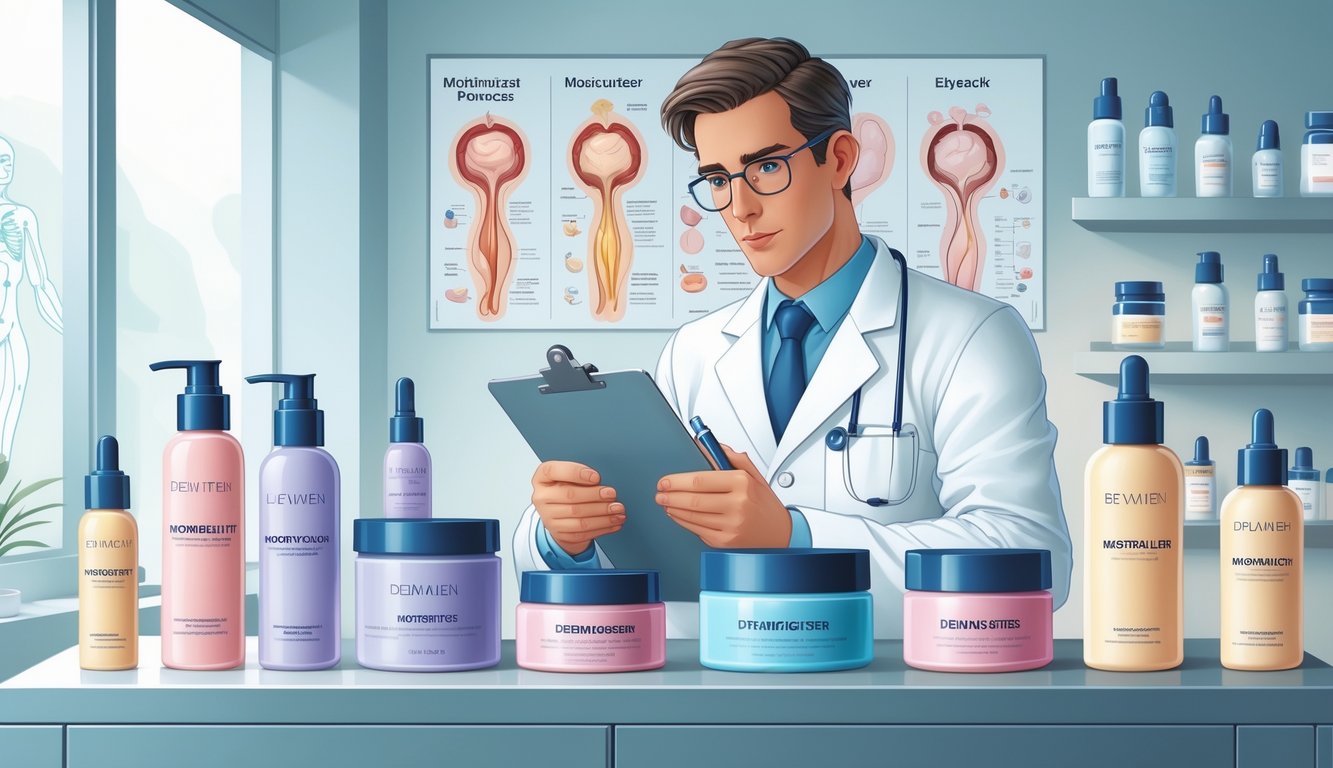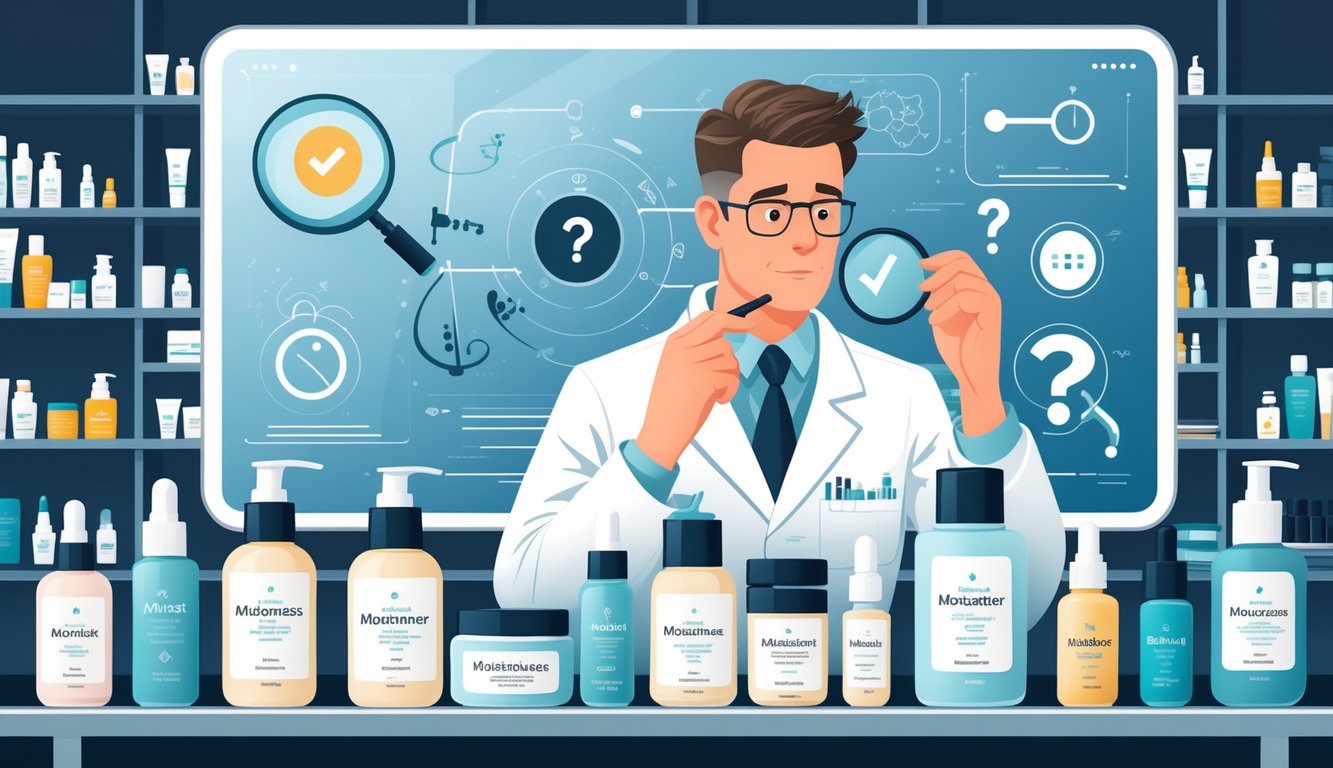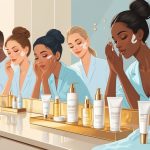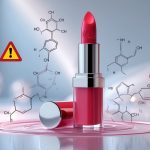Moisturizer Brands Making Big Promises Dermatologists Now Question
Is it just me, or does every scroll through TikTok slap you with another “miracle” moisturizer? Peptides, glass skin, wrinkle erasers—blah blah blah, like a parade of shiny jars and zero context. I keep wondering, do these brands think we’re all just waiting to be told our faces are broken? Big promises everywhere: overnight transformation, “barrier boosters,” some mystical solution for sensitive skin. But then, actual dermatologists (like Dr. Brooke Jeffy, who I’m pretty sure has better things to do than debunk TikTok) show up and, well, they’re not buying it. These board-certified folks are now poking holes in all the blockbuster claims—especially since the marketing hype never seems to line up with real evidence, let alone what they see in their clinics. And yeah, sometimes the only thing you end up with is angry skin or a lighter wallet (and if you think I’m exaggerating, check out the dermatologist-reviewed guides—I’m not the only one side-eyeing this stuff).
I’ve lost count of how many squalane “breakthroughs” I’ve seen hyped, only to watch actual experts reach for Vanicream or plain old petrolatum—seriously, the stuff that’s been around forever and doesn’t set off allergy alarms. Meanwhile, the “award winners” in the U.S. News rankings? Half of them barely touch the trendiest actives, but the moment a “dermatologist-created” serum drops, Sephora turns into a stampede. It’s hilarious, honestly: the more dramatic the claim, the more skeptical dermatologists seem. I mean, if these miracle creams worked, would people still show up in the office with rashes from whatever’s trending?
Half the time I’m standing in the aisle, snorting at “clinically tested” like it means anything. What, did they let a group of interns sniff the jar? The dermatologists I actually trust—both in person and in product reviews—don’t mince words: marketing is out of control, and finding a moisturizer that actually works? It’s like sifting through static. I guess it’s reassuring that even the pros are over the hype. Maybe double-check your ingredient list before you buy into the next “revolution,” or don’t—your money, your gamble.
Understanding Moisturizer Marketing Claims

So, yeah, I’m that person blocking the aisle, squinting at $60 tubes that promise “transformative hydration.” What does that even mean? “Clinically proven plumping” is just code for, “You’ll feel less dry for three hours.” I’ve had actual debates with dermatologists about peptide serums. Tried “dermatologist-approved” stuff that only seemed to work if I didn’t look too close in the mirror. Maybe they’re all just making it up as they go.
Industry Trends in Big Promises
Here’s the part that fries my brain: every new cream this year is “instant glow,” “24-hour moisture lock,” “hydration technology”—it’s a festival of adjectives. They slap on “clinically proven” like it’s a badge, but the fine print? Could be a weekend trial with twelve people and a dog.
Dr. Zoe Draelos (Duke, so, not a random influencer) points out that these trending claims rarely say what they’re actually fixing—just “improved everything.” Improved what, exactly? I keep looking for a single brand that drops real data, yet all I see is hope and asterisks. “Dermatologist tested” sometimes means one dermatologist looked at it once, maybe while eating lunch. (Want proof? Here’s a Deep Dive on Cosmeceutical Marketing Claims). If all these claims were true, I’d be immortal by now. Or at least not so dehydrated.
Common Language Used by Brands
Have you ever read the boxes? “Dermatologist approved,” “hypoallergenic,” “non-comedogenic,” “locks in essential moisture”—it’s a word salad. “Replenishing ceramides,” “niacinamide complex,” “overnight transformation.” I can’t decide if it sounds more like skincare or a sci-fi novel. “Clinically tested” usually means a handful of people tried it, maybe once, probably in a room with bad lighting.
And “anti-aging”—what does that even mean? Redness, fine lines, dryness… all lumped together. Why isn’t there a decoder ring for this stuff? Oh wait, there is, but you have to dig through skeptical dermatologist blogs, not the box. (“Dermatologist recommended” means what, exactly? Not much—see The Truth About Cosmetic Claims). Most “hydrating” claims just mean it doesn’t make your skin worse. If a product promises “miraculous results,” my advice? Run.
Assessing Efficacy of Key Claims
I’m still waiting for a moisturizer that erases wrinkles after one use. If you confuse “morning dewiness” with “permanent change,” you’re probably exactly who the ads are targeting. “Improves skin barrier,” “deep hydration,” “plumps fine lines”—where’s the data? Not in the ads, that’s for sure. Usually, it’s a tiny survey the brand did themselves, or a “study” that lasted about as long as my last nap.
Dermatologists tell me to look for ingredient percentages, actual study sizes, real timelines. If a brand gives you a checklist with real numbers (not just “85% said it felt nice”), maybe it’s worth a shot. Ingredient transparency beats “contains hyaluronic acid” every time. Red flags? Anything that promises instant miracles or can’t tell you what it’s actually fixing. In my totally unscientific opinion, the only thing that ever made a difference was using a basic moisturizer every day. Oh, and “advanced delivery systems”? Still waiting for my face to get beamed up.
Popular Moisturizer Brands Under Scrutiny

Some of these creams cost more than rent, and still, people want to know what’s under the shiny labels and endless lists of “proprietary” ingredients. “Instant repair”? “Airbrushed finish”? If a night cream ever made me look like a filter in daylight, I’d buy stock. Dermatologists? They keep popping up in interviews, rolling their eyes at the marketing. When’s the last time you saw a real person wake up with “poreless” skin after a cream?
CeraVe and Its Claims
CeraVe. The brand that somehow convinced everyone from broke college kids to TikTok grandmas that ceramides are the secret to life. “Restores the skin barrier!” It’s on every bottle. Is there a difference between “repair” and “moisturize”? I still don’t know.
I overheard a med student say, “CeraVe is like oxygen.” Sure, but let’s be honest: U.S. News says dermatologists like the basic formula (ceramides, hyaluronic acid), but one off-the-record doc told me, “Most people’s barriers aren’t broken—this is just marketing positioning.” CeraVe is popular because it’s cheap, safe, and if you hate it, you’re out $15, not $150.
I’ve never seen a rash vanish overnight. Maybe after a week, if I leave my face alone. And if you think it’ll erase your pores, good luck—those are just holes, not pencil marks.
La Roche-Posay’s Promises
La Roche-Posay. French pharmacy, sensitive skin, “Toleriane Double Repair”—it “strengthens” in one hour! (Sure it does.) The pump breaks before the bottle’s half empty, but whatever. A Columbia dermatologist I trust once said, “It’s niacinamide and a bit of prebiotic. Feels nice, but it’s not magic.”
The “microbiome science” bit? Mostly just thicker cream, so you think you’re more hydrated. “Calms even the most sensitive skin” is everywhere, but if that’s true, why do dermatologists still see reactions? U.S. News dermatologists admit it just means “less likely to cause irritation,” not “never will.” Nobody I know got their eczema “fixed”—it’s a moisturizer, not a prescription.
Also, most of their stuff is sunscreen. If you tried Toleriane and still woke up flaky, welcome to the club. My cousin says the sunscreen leaves a white cast unless you’re Casper.
Luxury Brands Like Tatcha and La Mer
Once saw someone return a $380 jar of La Mer—Miracle Broth, “cellular renewal,” glass jar that weighs more than my phone. The clerk didn’t even blink, just took it back. Because, let’s be honest, if a face cream “transformed” skin, nobody would need Botox. The scent, though? Not bad.
Vogue’s best moisturizer list puts Tatcha and La Mer up top for “luxury.” Dermatologists? They keep saying there’s no real evidence these outperform drugstore basics. My own derm just shrugs: “Want dewy skin? Pat in water before you use Tatcha.” So why the $100 markup? Pretty packaging and a story about Japanese botanicals, I guess.
Even the “miracle” blends (La Mer Miracle Broth, SkinCeuticals Triple Lipid Restore) just recycle basic ingredients—sometimes with more, sometimes fewer preservatives. The “overnight rejuvenation” claim? If that worked, plastic surgeons would be out of business. You’re buying a vibe, not results.



